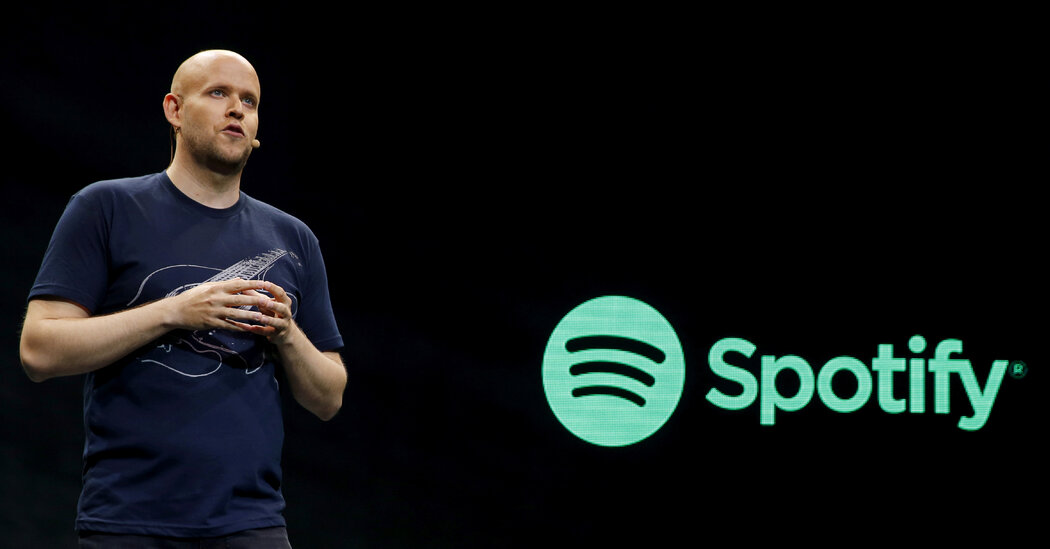

The chief executive of Spotify responded on Sunday to growing complaints from musicians and listeners over the role of Joe Rogan, the streaming service’s star podcaster, in spreading what has been widely criticized as misinformation about the coronavirus. Last week, Neil Young and Joni Mitchell — two musical icons whose cultural influence is far greater than their streaming numbers — removed their music from Spotify to protest the platform’s support of Rogan.
“We know we have a critical role to play in supporting creator expression while balancing it with the safety of our users,” the CEO, Daniel Ek, who is also one of Spotify’s founders, wrote in a public letter. “In that role, it is important to me that we don’t take on the position of being content censor while also making sure that there are rules in place and consequences for those who violate them.”
Ek made no specific mention of Rogan, who has drawn complaints for his interviews with vaccine skeptics. This month, a group of more than 200 professors and public health officials called on Spotify to crack down on Covid-19 misinformation on its platform, and pointed to a recent episode of Rogan’s podcast featuring Dr. Robert Malone, an infectious-disease expert, that included “several falsehoods about Covid-19 vaccines,” according to the experts’ letter.
Last week, Young and Mitchell cited those complaints when removing their music from Spotify, sparking debate throughout the music industry about what role artists can have in deciding where their music is heard. Young called Spotify “the home of life threatening Covid misinformation”; Mitchell wrote, “Irresponsible people are spreading lies that are costing people their lives.” In response, many users have swarmed social media to show support for Young and Mitchell and to say they were canceling their subscriptions to Spotify, though the service has not said how many accounts were canceled.
More widely, the issue has ignited new debate over questions about free speech on the internet and about political polarization in the coronavirus era. Technology and social media platforms, like Facebook, YouTube and Twitter, have been widely accused of playing a prominent role in spreading untruths about the virus and the vaccines to prevent it. But some free speech advocates have also defended those outlets for allowing open debate, and services like Facebook and YouTube have touted their records of taking down what they view as clear misinformation.
Ek said that Spotify would add a “content advisory” notice to any podcast episode that includes a discussion about the coronavirus, directing listeners to a “Covid-19 hub” with facts and information. That hub includes links to health authorities like the Centers for Disease Control and Prevention, as well as podcasts from news sources like the BBC, CNN and ABC News. Rogan, a comedian and actor, signed an exclusive podcast deal with Spotify in 2020 that has been reported to be worth $100 million, though Spotify has not confirmed that figure. His show is the most popular on Spotify.
Ek also wrote that for the first time, the service is publishing its platform rules, which address dangerous, deceptive, sensitive and illegal content. Among them are rules barring “content that promotes dangerous false or dangerous deceptive medical information that may cause offline harm or poses a direct threat to public health,” including denial of the existence of Covid-19 or that “promoting or suggesting that vaccines approved by local health authorities are designed to cause death.”
On Wednesday, when Spotify began removing Young’s music, the company said that it has “removed over 20,000 podcast episodes related to Covid since the start of the pandemic.” Rogan’s episode with Dr. Malone remains available on Spotify.
24World Media does not take any responsibility of the information you see on this page. The content this page contains is from independent third-party content provider. If you have any concerns regarding the content, please free to write us here: contact@24worldmedia.com
